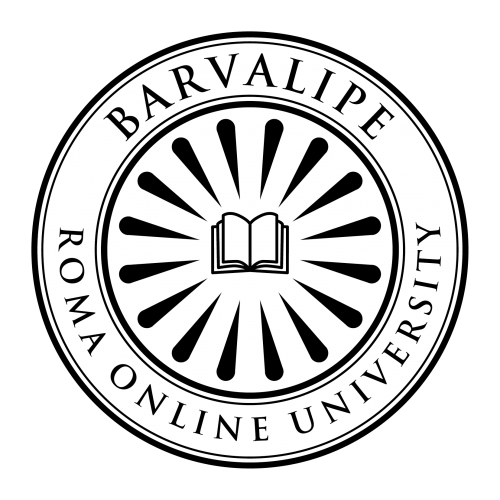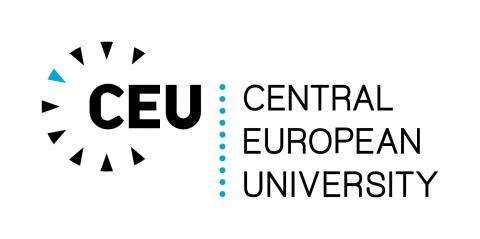8052
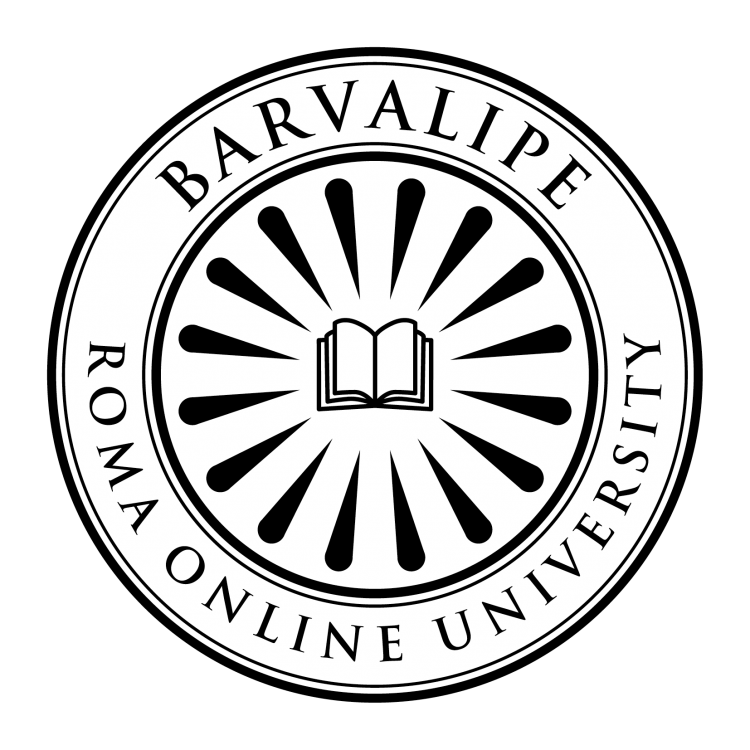
We are launching the Barvalipe Roma Online University!
Bavarlipe Roma Online University is an online educational platform where Roma and non-Roma can access knowledge about the Roma identity(ies), history(ies) and culture(s) thorough a collection of high-quality lectures delivered by leading Roma scholars on topics ranging from the Roma Holocaust to Roma cultural productions. In partnership with Central European University (CEU), this project is part of ERIAC’s Roma Cultural History Initiative financed by the German Federal Foreign Office (FFO).
The first course of the Barvalipe Roma Online University launched on September 1, 2020. The inaugural course, “Introduction to Roma Cultural History,” begins with the history of Romani arrival in Europe, traces Romani cultural, social, and political presence in Europe and ends with a reflection on the importance of contemporary Romani knowledge production. The course consists of 15 lectures delivered by renowned scholars. Together they comprise a complete curriculum of Roma Cultural History that proposes a canon and acts as a reference for Roma cultural history. Each week starting September 1st we will launched a new lecture that was live-streamed on Facebook. Following each lecture premiere, we moderated a discussion with the lecturer and invited guests in which the audience also had a chance to ask questions.
Schedule of Lecture Premieres:
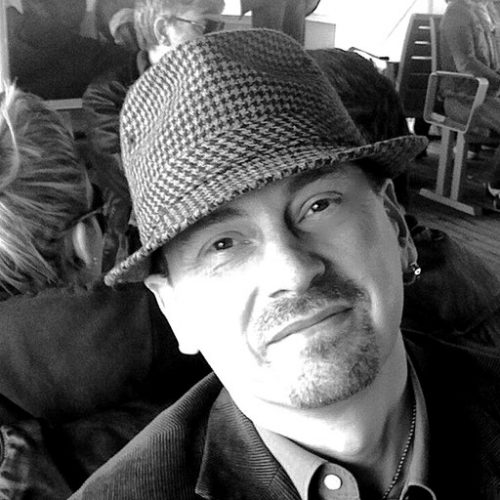
1. Roma 101: Introduction to Roma Identity, History and Historiography by Dr. Adrian Marsh — September 1, 2020 Abstract: The history of Romani identity is a complex and contested history, filled with uncertainties of identification, myths, untruths and dubious assertions (usually by other, non-Romani writers). What do we mean by Romani identity? When does Romani identity coalesce, come into being? What are the components of Romani identity? What do they add up to? Romani history is, like all history, the piecing together of the evidence (usually documentary and written), from a myriad of empires, kingdoms and states for whom Romani people were not the main concern. How has this influenced the writing of Romani history by others? How have Romani historians of Romani history addressed the process? What has been the impact of new trends in history writing, the cultural and linguistic ‘turns’, post-modernism and the revival of narrative, had upon the writing of Romani history? What is Romani ‘historiography’? How has the history of Romani and Traveller groups been written and by whom? Who and what is included or excluded in the writing of Romani historiography? Guided by these questions, this lecture introduces the topics of identity, ethnicity, history, and historiography through the ‘window’ of a key location in the history of Romani populations, as pathways into the wider debates and discussions that continue to surround them. Bio: Dr Adrian R. Marsh is of U.K. Romany-Traveller origins, a Researcher in Romani Studies at the Swedish Research Institute in Istanbul and an expert consultant in Romani and Traveller early years education, working with Romani, Gypsy and Traveller communities and NGO’s (such as the Romani Cultural & Arts Company) in the UK, Sweden, Turkey, Egypt, and across Central, Eastern and South-Eastern Europe. Lecture: Webinar:
He gained a PhD in Romani Studies from the University of Greenwich, London (2008), an MA in South East European and Turkish area studies from the School of Oriental and African Studies, University of London (1998) and was awarded a BA first-class honours degree in East European history at the School of Slavonic and East European Studies, University College London (1996), where he won the Andrew Ferguson Memorial Prize for his dissertation on royal women and power, in the Ottoman Empire (1996).
Marsh has taught Romani Studies at universities in London, Malmö, Lund, Stockholm, Cairo, Istanbul and Lyon and has held an Economic and Social Research Council fellowship as Researcher in Romani Studies at University of Greenwich, London (2007-2008). He recently designed and managed a large portfolio of Romani and Traveller early childhood development projects, implemented by the Open Society Foundations (London) as part of its Early Childhood Programme and set up the Romani Early Years Network [www.reyn.eu] for educators (2012), where he remains a consultant.
He is currently living in Istanbul, where he leads the International Romani Studies Network, an NGO he established there, in 2002. Marsh has published numerous articles on Romani identity (2003; 2005; 2006), history (2008) and religiosity (2012), edited collections from international conferences on Romani studies organized by him in Istanbul (2003; 2005) such as Gypsies and the Problem of Identities: Contextual, Constructed and Contested (2006) and contributed to various conference proceedings (including the GLS Annual Meeting and Conference), peer-reviewed journals on education for Romani and Traveller children, as well as co-authoring the entry for ‘Roma’ in the Encyclopedia of Global Human Migration (2013).
https://www.facebook.com/watch/?v=644167516204777&extid=jco0el9zfaUBEu8m
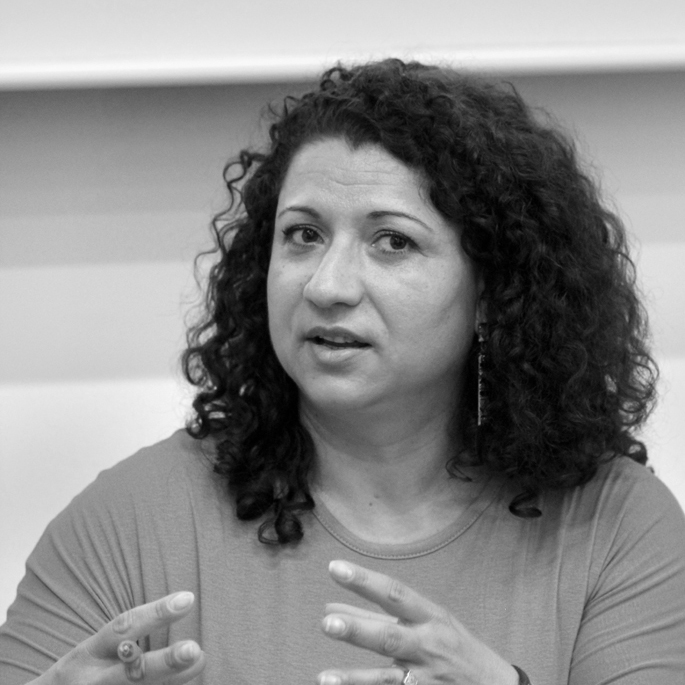
2. Introduction to the Romani Language by Mihaela Zatreanu — September 8, 2020 Abstract: Bio: Lecture:
Drawing on the rich scholarly research of linguists such as Gheorghe Sarau, Marcel Courtiade, Dieter Halwachs, Yaron Matras and Kimmo Granqvist, this lecture provides a broad overview of the Romani language. The lecture covers information such as the history of the Romani language it’s dialects and contemporary use. We discuss the Romani language from historical and sociolinguistic perspective at European level. We will also delve a bit deeper to explore the classification systems used by linguists, as well as codification, or writing, systems. Zooming out we’ll also consider the status and implementation of the Roma language and consider the importance of promoting the Romani language.
Mihaela Zatreanu is probably one of the best Romani language teaching experts among the Roma with a broad outlook at the Romani language field. Graduate in Pedagogical High School, Foreign Language Faculty and a Master in European Studies in Bucharest. Mihaela has worked in Roma education in the past 20 years, first as a primary school teacher, then as a trainer for Roma and non-Roma educators, and educational inspector at the Ministry of Education. Mihaela Zatreanu has been developing the first curriculum for Romani language and other educational publications in Romania and continued her activity as author of text books, publishing a series of text books for Romani language. During 5 years as educational inspector in the Ministry of Education and Research, she contributed to the designing of the legislative policies for increasing the school participation of Roma, has been monitoring and guiding local programs for supplementary school assistance and introduced the school mediator for the first time in Romania. Mihaela Zatreanu had an important role for introducing Romani language and history in state schools at national level and for the allocation of special places for Roma students at high school and university level. At the European level Mihaela Zatreanu has been working in cooperation with the Council of Europe, she was acting several years as the educational expert for the Council of Europe, contributing to the development of the policy paper for the education of Roma children in Europe, developing the Guide for Roma school mediators, the booklet Romani in Europe, teaching materials for primary school education and contributed to the development of the Curriculum Framework for Romani Language together with a group of European experts. She has been CoE trainer for school mediation and the National Program Officer of ROMACT program in Romania.
Webinar:
https://www.facebook.com/watch/?v=644167516204777&extid=jco0el9zfaUBEu8m

3. Roma Identity: Between Unity and Radical Diversity by Dr. Ismael Cortes — September 15, 2020 Abstract: This lecture aims to answer the following underpinning questions: how could such a transnational identity as the Roma operate effectively in highly de-centralized political systems? How do different dimensions of the Roma identity intersect and interact: ethnicity, social class and ideology? What are the limits of ethno-communitarian logics of participation in post-racial societies? Which kind of commonalities shall we search for to connect the Roma communities with the non-Roma? To answer these questions, the lecture reconstructs the genesis of over thirty years’ debates on Roma rights tracking from the studies on exclusion and discrimination to the new trends on self-definition and self-determination. Conceptually this lecture will expose the nexus among some key notions that will trace the plot of this theoretical and political labyrinth: “pariah” (Hancock, 1987), “antigypsyism” (Cortés and Markus, 2019), “identity politics” (van Baar and Kocze, 2020), “multitude and commonality” (Hard and Negri, 2004; 2009). Bio: Ismael Cortés hold a PhD in International Studies of Peace, Conflicts and Development by the UNESCO Chair of Philosophy for Peace at Universitat Jaume I. He has been a researcher at the University of Nottingham, the International University of Andalusia and the Carlos III University. He has been an expert consultant in the OSCE – ODHIR project “Turning words into action. Combating anti-Semitism and other forms of intolerance (2015-2018)”. He has worked as a policy analyst for think tanks such as the Center for European Policy Studies and the Open Society European Policy Institute. He was a postdoc felow of the Roma Studies Program at Central European University. He coordinated the book Dimensions of Antigypsyism in Europe. Currently he serves as an MP in the Spanish Parliament. Lecture: Webinar: https://www.facebook.com/EuropeanRomaInstituteERIAC/videos/347769766635647/
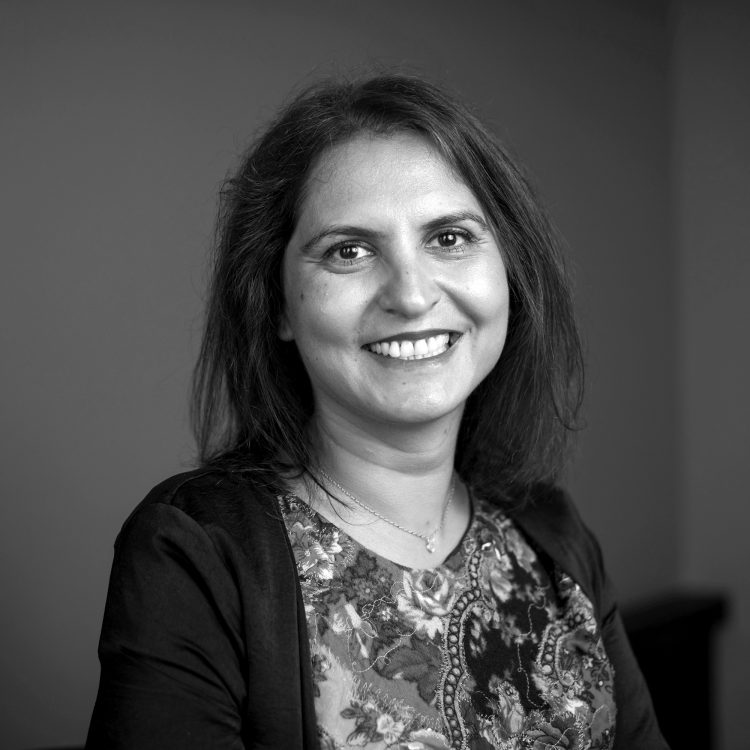
4. Roma Slavery, History, Legacy, Reparations by Dr. Margareta Matache — September 22, 2020 Abstract: In this lecture, I describe the horrors of Roma slavery and the tactics used by enslavers to justify and legitimized oppression, economic exploitation, and brutal violence, including rape, murder, and family separation. I engage with the global scholarly literature on slavery and reparations through a Roma lens, suggesting possible ways to ensure reparations, a critical element in the quest for repair, healing, and accountability for state wrongs. Bio: Lecture: Webinar: https://www.facebook.com/1995165164067234/videos/3339559229425228
When fast sailing ships boosted the European colonial project and the slave trade, within Europe, in the Principalities Wallachia and Moldova (territories of nowadays Romania), Romani people had already been coerced into a system of chattel enslavement since 1385 or perhaps earlier. Neither prisoners of war, nor victims of pirates, Roma were enslaved and exploited from one generation to another for five centuries. The State, boyars, and the Orthodox Church enslaved Roma for their distinctive and essential skills and justified exploitation through cultural and race prejudice.
Dr. Margareta (Magda) Matache is a justice activist and scholar from Romania, director of the FXB Center for Health and Human Rights’ Roma Program, and a Harvard instructor. Her research and teaching focus on the history and manifestations of anti-Ramani racism as well as the global history of race and racism. From 2005 to 2012, Dr. Matache was the Executive Director of Romani CRISS, a human rights organization that defends the rights of Roma. In 2012, she was awarded a Hauser postdoctoral fellowship at the FXB Center, where she founded the University’s first and only Roma Program. In 2017, with Jacqueline Bhabha and Andrzej Mirga, she co-edited Realizing Roma Rights, an investigation of anti-Roma racism in Europe. Also, along with Jacqueline Bhabha, Caroline Elkins, and Walter Johnson, Matache is the co-editor of Time for reparations. Addressing state responsibility for collective injustice, a forthcoming volume exploring the issue of reparations across a broad range of historical and geographic contexts and academic disciplines. She completed her Master’s in Public Administration from the John F. Kennedy School of Government at Harvard University, and her doctoral degree in Political Sciences from the Faculty of Political Sciences at the University of Bucharest.
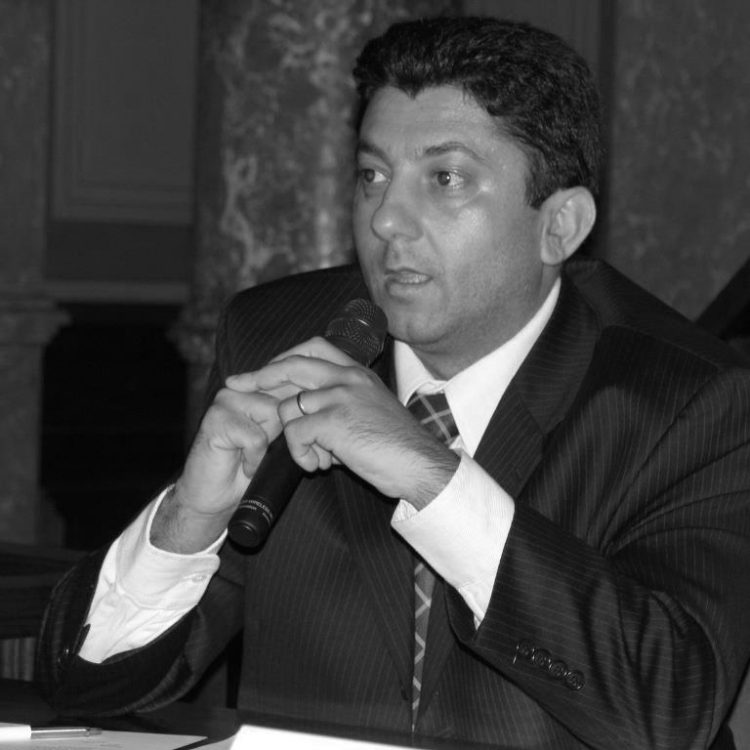
5. An Introduction to Antigypsyism by Dr. Iulius Rostas — September 29, 2020 Lecture: Webinar: https://www.facebook.com/EuropeanRomaInstituteERIAC/videos/2752853231702175
Abstract:
The lecture will define the antigypsyism as a core concept of Critical Romani Studies, will explore the meaning of antigypsyism nowadays, its intellectual roots and manifestations. The concept is controversial and there are still aspects to be agreed upon by scholars, activists and academics: terminology, definition, features, its origins, manifestations and how it could be measured. The clarification of terminology is crucial as there are competing terms used to designate the hate and exclusion of Roma by majority society: Romaphobia, anti-Romaism, anti-Roma racism, anti-tziganismus, anti-tiganism, antigypsyism etc. Should there be a specific term to designate the oppression and discrimination against Roma? Or should we use rather a more universal term such is racism against Roma? What are the origins of Roma exclusion and discrimination? What are the most common manifestations of antigypsyism nowadays? How to measure antigypsyism? These will be the guiding questions of the lecture.
Bio:
Dr. Iulius Rostas is a Visiting Professor at the National School of Political Science and Administration (Romania). Between 2016 and 2019 he served as Chair of Romani Studies and Assistant Professor at Central European University and founded the Romani Studies Program at CEU. Previously, he was an Affiliated Fellow with the Institute for Advanced Studies at CEU, Senior Fellow with the Open Society Foundations Roma Initiatives Office and Visiting Lecturer at Corvinus University of Budapest. He has worked for the Open Society Foundations, the European Roma Rights Center and the Government of Romania and consulted the Organization for Security and Cooperation in Europe, the World Bank, the European Commission, USAID, the Council of Europe and the Roma Education Fund. Dr Rostas is the editor of “Ten Years After: A History of Roma School Desegregation in Central and Eastern Europe” (CEU Press, 2012) and in 2011 he published “Social Inclusion or Exclusion: the Rights of Persons Living with HIV in Moldova” (Cartier Publishing, 2011). He is the Editor-in-Chief of the Critical Romani Studies journal (crs.ceu.edu). His latest book “A Task for Sisyphus: Why Policies towards Roma in Europe Are Failing” was published by CEU Press in 2019.

6. The Roma Holocaust and the history of Roma Resistance by Dr. Ethel Brooks - October 6, 2020
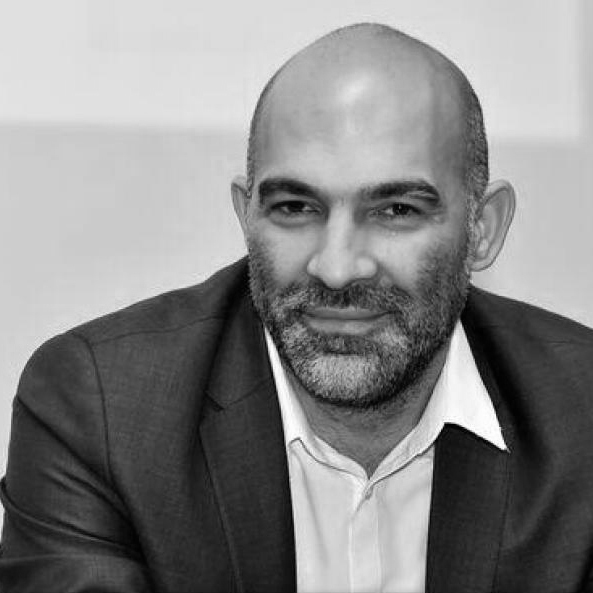
7. Roma Sovieticus: Roma Experience under Communism by Dr. Ciprian Necula - October 13, 2020 Abstract: Bio: Dr. Ciprian Necula it is a visiting professor and coordinator of the Masters Program on Romani Studies at the Political Science Faculty of SNSPA/Bucharest. He teaches ethnicity, masculinity and public policies on Roma. He started his career as a human rights activist under the supervision and mentorship of Nicolae Gheorghe, using innovative tools to address the stereotypes and prejudices against Roma. He has been a journalist, a leader of public campaigns, a promoter of social-economic projects, a political analyst, co-founder of a social enterprise, the leader of a Roma NGO, a consultant for international organizations, a debater in public media, and the initiator of the Roma Culture Museum in Bucharest. Currently, Ciprian Necula it is leading the Aresel Platform in Romania and Roma Education Fund as an Executive Chair. Necula holds a PhD in sociology. Lecture: Webinar: https://www.facebook.com/EuropeanRomaInstituteERIAC/videos/2412445202396593
Was communism in reality the egalitarian regime it promised to be, that allowed Roma to develop similar to the other citizens? I raise this question in light of my many interactions with members of Roma communities from Romania who claim that the best regime for our communities was communism. To be certain, their subjective experience may support this assumption, but in terms of communist State policies, what was the approach on Roma? Were Roma treated differently as compared to previous political regimes? To begin to answer these questions, in this lecture we will analyze the public policies of the communist regime for Romanian-Roma as a case study for the Roma experience under communism. We will look at documents from the National Council for Studying the Securitate Archives to understand the preoccupation of the Socialist Republic of Romania regime with the Roma and we will explore how Roma activism was possible under such an oppressive system.
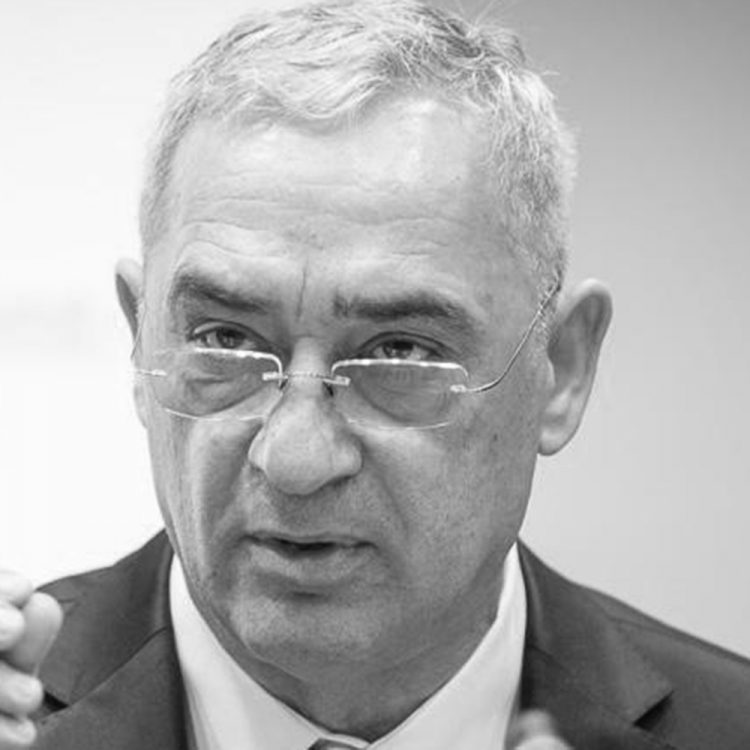
8. History of the Roma Political Movement by Andrzej Mirga - October 20, 2020 Abstract: This lecture provides a broad overview of the history of the Romani movement. The year 2020 marked 76 years since the liquidation of the Zigeunerlager at Auschwitz-Birkenau on August 2, 1944. Roma Holocaust Memorial Day was recognized by the European Parliament in 2015 and by Polish Sejm in 2011. Since the establishment of the Central Council of German Sinti and Roma led by Romani Rose in 1982 the struggle for recognition reached a critical phase. The Roma Holocaust became an essential part of our history, it also provided a foundation for the Romani movement. The lecture tells the history of the Romani movement from an insider perspective, from the viewpoint of the prime actors who played an active role in shaping and writing the political history—of those sitting at the tables and negotiating with decision-makers—not from an outside scholarly perspective. The lecture presents ‘our’ part of the story and therefore focuses on ‘our’ vision of the movement, on actors and audiences, on objectives and what we have reached, on mobilization we have passed through, who we are now after several decades of being in the movement and where we still aim to arrive. Bio: Andrzej Mirga, a Polish Roma, an ethnologist/anthropologist, analyst and activist. Until December 2019 he chaired the Roma Education Fund Board, Budapest. Between 2006 and 2013 he headed the Contact Point for Roma and Sinti Issues at the OSCE’s Office for Democratic Institutions and Human Rights (ODIHR), in Warsaw, Poland. A long-term associate of the Project on Ethnic Relations (PER), the U.S.-based nongovernmental mediating organization with headquarter in Princeton, New Jersey (until 2006). He has also served as an expert at the Committee of Experts on Roma and Travellers of the Council of Europe, and its chair, later joined the Poland’s Common Commission of the Government and National and Ethnic Minorities, as well as, the High-Level Group on Labour Market and Disadvantaged Ethnic Minorities (European Commission, 2005–2007). He has taught at various universities and has published widely since the 1990s. Lecture: Webinar: https://www.facebook.com/EuropeanRomaInstituteERIAC/videos/345142280038640

9. Romani Feminism, Intersectionality and LGBT Roma movement by Dr. Angela Kocze - October 27, 2020 Abstract: The history of Romani political activism is traditionally narrated from a heterosexual, masculine perspective, with the role of men being magnified, whilst the accomplishments of women and of people of different sexualities, becoming a rather diminished, or even invisible matter. This lecture will focus on how intersectionality as a theoretical and methodological framework has been utilized by Romani feminist and LGBT scholars and activists. The lecture will employ theoretical frameworks and terminology from critical race studies, to sharpen the gendered racialization of Romani women through historical narratives. The aim of the lecture is to underpin the current manifestations of intersectional discrimination, in other words, as it is named by Romani activists, the “double exclusion” and domination by both Romani patriarchy and non-Romani political and economic regimes. Bio: Angéla Kóczé is an Assistant Professor, Chair of Romani Studies, and Academic Director of the Roma Graduate Preparation Program at Central European University in Budapest, Hungary. In 2013–2017, she was a Visiting Assistant Professor in the Department of Sociology and Women’s, Gender and Sexuality Studies Program at Wake Forest University in Winston Salem, NC, USA. She has published several peer-reviewed articles and book chapters with various international presses, including Palgrave Macmillan, Ashgate, Routledge and CEU Press, as well as several thematic policy papers related to social inclusion, gender equality, social justice and civil society. In 2013, the Woodrow Wilson International Center for Scholars in Washington, DC, honoured Kóczé with the Ion Ratiu Democracy Award for her interdisciplinary research approach, which combines community engagement and policymaking with in-depth participatory research on the situation of the Roma. She is a co-editor of The Romani Women’s Movement: Struggles and Debates in Central and Eastern Europe (Routledge, 2019, with Violetta Zentai, Jelena Jovanović and Enikő Vincze) and The Roma and their Struggle for Identity in Contemporary Europe (Oxford: Berghahn, 2020, with Huub van Baar Lecture: Webinar: https://www.facebook.com/EuropeanRomaInstituteERIAC/videos/1654804474690858/

10. Urban Memories and Countryside Mirrors: A History of Romani Performing Arts by Miguel Angel Vargas - November 3, 2020 Abstract: Raising the question of when can we start talking about Romani Performing Arts beyond Romani performers and Romani characters, help us build an international reading of the crucial variety of national examples of Romani performers from Turkey to USA, in a crossed chronology. Connecting influences of the different contexts we learn about the capacity of Romani artistic agency to break genre limits and adapt the public discourses of alterity. A real trip from the dawn of modernity to the challenges of XXI Century, with examples including the Romani Turkish Puppet tradition, the Spanish Golden Age Theater and the XIX Century Teatro Gitanesco, the Royal masquerades in France, the Roma Slave Jesters in Walachia and Moldavia, the work with animals in Roma circuses and bullfighting, fairs and carnivals, the theatricality of different Roma religious traditions, the experiences of XIX and XX century international exhibitions and the relation between institutionalised and independent theatre companies. Though the remains of texts and the imagery created for and associated with Roma performing arts artists, we reflect on the space that theatrical fiction and representation might have in the questioning of XXI Century Romani identities. Bio: Miguel Ángel Vargas, Art Historian and Theater Director (1978) Spain As independent researcher and artist, Vargas combines flamenco, theater and romani history as experienced-based themes of his artistic and academic inquiry. He has worked internationally as an actor, director, set designer, production manager and even opera technician among other roles in performing arts during his 20 years of career. He has collaborated with several academic institutions such as Central Saint Martins College of Arts of London, as coordinator of the work experience of their Performing Arts MA; member of Pendaripén, interdisciplinary research group on History of the Romani People, of the University of Seville and has participated in several seminars on Critical Romani Studies of Central European University. Publications: Lecture: Webinar: https//www.facebook.com/watch/?v=807603929782373
– Catalog of the exhibition Camarón de la Isla by Lita Cabellut. Aufbau Haus, Germany. 2012.
– Co-curator of Theater section of RomArchive. Kulturstiftung des Bundes – German Cultural Federal Fundación, 2017
– Performing Gitanidad (Romaniness) On Stage, HowlRound Theatre commons, marzo, 2019.
– A political reading of “Flamenco Gitano” in an international Roma context. 1963 to 2010 Roma in European Societies Grant. Central European University, 2019 (in progress)
– Museological plan for the Andaloussian Museum of Flamenco de Andalucía, Junta de Andalucía,. 2020

11. Romani Dance History by Dr. Rosemary Cisneros - November 17, 2020 Abstract: This lecture will offer an overview of Romani Dance history exploring the multi-faceted traditions, innovations and influences of Romani Dance around the globe. We will focus on influential Roma dancers, companies, and performances, and also explore grassroots performers and choreographers. While there won’t be enough time to have a comprehensive account of all Romani dance, what the lecture will strive for is to pull together mini vignettes that will offer the student insight into the diverse background of Romani dance history. A wide range of materials, including digitised film and photographs, artworks, graphics, dance notation and texts as well as new materials created especially for the lecture, will be used in a creative fashion. The lecture will be engaging and allow participants to have time to reflect and define what Romani Dance means to them. Research Interests: Dance; Flamenco; Dance History; Roma Community; Cultural Heritage; Digital Technologies; Participatory Research, Sociology, Intersectionality, Gender, Human Rights, Migration Bio: Rosamaria is a dancer and choreographer, Dance Historian and Critic, Roma Scholar, Sociologist, Flamenco Historian and Peace Activist who graduated from UW-Madison and went on to complete her Master’s in Dance History and Criticism from UNM-Albuquerque (USA). Her PhD is in Sociology with a focus on Roma women, intersectionality, dialogic feminism and communicative methodologies. Rosamaria is a professional dancer, choreographer, curator and qualified teacher, who has lived and danced in various parts of the world and collaborated with many Flamenco greats and other leaders in the Dance field. She has taught throughout Europe and the US at places like UW-Madison, UIUC, Boston Conservatory, Brown University and at various other places in Germany, Spain and Turkey. She is a dance writer who makes regular contributions to Bachtrack Magazine and Flamenco News having also danced with Protein Dance Company in the UK. Rosamaria is involved in various EU funded projects which aim to make education accessible to vulnerable groups and ethnic minorities and sits on various Boards: Roma Coventry Project (UK), Drom Kotar Mestipen Roma Women’s Association (Spain) and the Early Dance Circle (UK). At the moment she is a Research fellow at Coventry University’s Centre for Dance Research based in the UK. She is also an independent artist, dancer, curator and teacher who has organised various festivals and exhibitions. Her dance films have screened in the UK, US, Colombia, Mexico, Greece, Cyprus and Germany and her latest documentary won best documentary from the UK in 2016. She has started her own production company, RosaSenCis Film Production Co., which worked on the Society for Dance Research Oral History Project. The company aims to create dance films and documentaries that capture stories and reflect embodied traditions that might otherwise be lost. She has also managed major EU-Funded projects and local City of Culture Partnership projects. Rosamaria collaborates closely with the University of Barcelona’s Community of Researchers for Excellence for All (CREA). She sits on academic Journals as an editorial assistant and those include the Journal for Embodied Practices and International Journal of Romani Studies. Lecture: Webinar: https://www.facebook.com/EuropeanRomaInstituteERIAC/videos/404990710542752

12. Roma Art: An Epistemic, Political and Institutional Achievement by Timea Junghaus - November 24, 2020

13. The Universe of Romani Music by Dr. Petra Gelbart - December 1, 2020 Abstract: Bio: Lecture: Webinar: https://www.facebook.com/EuropeanRomaInstituteERIAC/videos/1751171531705470/
What is Romani music? Balkan brass bands, zurla & tapan music, lăutar music, Manouche/Sinti/Gypsy jazz, and flamenco. These genres are just a few distinct musical repertoires that could fall under the broad definition of Romani Music. Music composed, played, and danced to by Romani performers is a diverse set of practices that are difficult to unite through musicological analysis; There is no “Gypsy scale,” rhythmic pattern, or harmonic structure shared by the vast repertoires of Romani Music. Romani musicians also engaged in cross-cultural exchange with local musical styles. In this lecture, we will explore the diverse universe of Romani Music as well as the role of music in fostering awareness of Romani people and their history.
Dr. Petra Gelbart is a Romani educator, scholar, and musician. She was first introduced to Romani music and language by her family while growing up in Czechoslovakia. She earned her Ph.D. in musicology/ethnomusicology at Harvard University and went on to co-found the Initiative for Romani Music at New York University. Her research interests include interethnic communication, the psychology of music, the Holocaust, and institutional ethnography. She has taught courses at the university level on music, the Holocaust. Dr Gelbart is also a board-certified music therapist specialized in rehabilitative and developmental therapy.
In addition to practicing in New York City, she works with Czech foster and adoptive families raising Romani children.

14. Roma Knowledge-Production – Examining the Critical Turn in Romani Studies by Dr. Colin Clark - December 8, 2020 Abstract: References: Bio: Lecture: Webinar: https://www.facebook.com/EuropeanRomaInstituteERIAC/videos/422252798946762/
This lecture offers a review of Roma knowledge production and what has been termed a critical turn in the academic field of Romani Studies (Bogdan et al, 2018). What counts as ‘knowledge production’, in this context, and what makes it specifically Roma? Further, what does a ‘critical turn’ involve? Whilst it is true that people and communities known as Roma, Sinti, Travellers, Gypsies have been discussed in University curriculum and academic projects over many years now, it is only more recently that the discipline has started to be ‘seen through Romani eyes’ (Le Bas and Acton, 2010). This post-colonial shift, in both perspective and practice, is, it will be argued, long overdue and, for the most part, welcomed. However, it would also be fair to say that this paradigmatic shift was not welcomed by everyone (Matras, 2017). Some scholars, often non-Roma, queried the nature and consequences of this alleged ‘critical turn’ leading to ‘the dangers of a closed society research paradigm’ (Stewart, 2017). There appears to be, at the heart of such debates, a philosophical and epistemological clash: the assumed values of truth, science and objectivity as opposed to assertions of propaganda, politics and subjectivity. This lecture offers comments on these matters. It will provide a trajectory of where we are now and how we came to be here. In what way might these debates need to be re-examined in light of broader decolonization efforts across North American and European Universities, as well as the work of Black Lives Matter and other campaigns? Topically, what does Roma knowledge production look like in times of COVID-19? And what might happen if our current conditions mean that the critical turn is derailed due to neoliberalism, populism and the far-right? The lecture will conclude by offering a roadmap of what such futures might hold. At heart of all of them there needs to be a narrative of Roma intellectual liberation and emancipation.
Bogdan, M., Dunajeva, J., Junghaus, T., Kóczé, A., Rostas, I., Rövid, M., & Szilvasi, M. (2018). Introducing the New Journal Critical Romani Studies. Critical Romani Studies, 1(1), 2-7. https://doi.org/10.29098/crs.v1i1.19
Le Bas, Damian and Action, T. (eds) (2010) All Change! Romani Studies Through Romani Eyes, Hatfield: University of Hertfordshire Press.
Matras, Y. (2017) From Journal of the Gypsy Lore Society to Romani Studies: Purpose and essence of a modern academic platform. Romani Studies 27(2): 113-123.
Stewart, M. (2017). Nothing about us without us, or the dangers of a closed-society research paradigm. Romani Studies 27(2): 125-146.
Colin Clark is Professor of Sociology and Social Policy at the University of the West of Scotland. He is a first-generation University student and from a Scottish Traveller background. His PhD was undertaken at the University of Edinburgh (2001) where he was supervised by Professor Judith Okely. Colin’s academic and activist work for more than 25 years has been principally in the field of Romani, Refugee and Migration Studies. Colin sits on the Board of Directors of the Coalition for Racial Equality and Rights and is a Trustee of Romano Lav (Roma Voice). He also acts as an adviser to the Scottish Human Rights Commission, the Traveller Movement and the Advisory Council for the Education of Romanies and Other Travellers. Recent publications include: Clark, C. (2020) ‘Stay or Go? Roma, Brexit and European Freedom of Movement’, Scottish Affairs, 29(3): 403-418; Clark, C. (1998) ‘For work, we came here to find work’: migrant Roma employment and the labour of language. In P. Beresford, & S. Carr (eds.), Social Policy First-Hand: An International Introduction to Participatory Social Welfare Bristol: Policy Press (p.107-117) and Clark, C. (2018). ‘Sites, welfare and ‘barefoot begging’: Roma and Gypsy/Traveller experiences of racism in Scotland’. In N. Davidson, M. Liinpaa, M. McBride, and S. Virdee (eds.), No Problem Here: Racism in Scotland Edinburgh: Luath Press (p.145-161). Colin occasionally tweets at: @profcolinclark
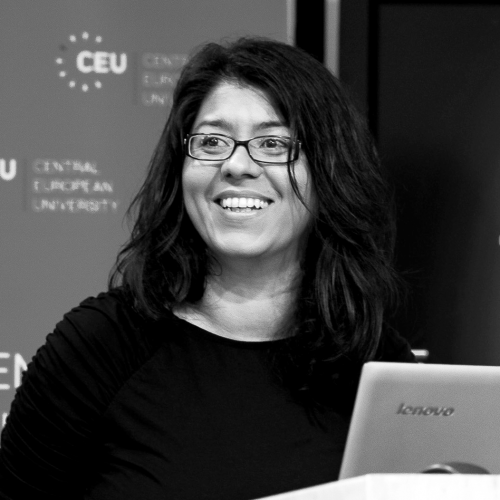
15. Media Representation of Roma in the age of social media by Dr. Maria Bogdan - January 19, 2021 Abstract: Bio: Lecture: Webinar: https://www.facebook.com/EuropeanRomaInstituteERIAC/videos/695410244680198/
Media has the power of representing the different concepts of our society such as race, gender, ethnicity, class and religion and also to contribute to their constructions. These representations are not innocent but they all reflect ideologies that construct these categories, and through them our own realities and society. Understanding the concept/the meaning/the image of Roma in society can not only show how Roma are positioned in society but it can also contribute to the better understanding of racism against Roma (Antigypsyism) and of the European discourse of racism and politics of diversity as well. In my lecture I will talk about how media research can contribute to challenge racism against Roma (Antigypsyism) and will show what role social media plays now in empowering Roma communities while deconstructing the negative image of Roma in society.
She is a media theorist. Her main research interest is related to media representation, social media and identity, the modern forms of racism and the questions of diversity. She received her PhD from the Film, Media and Culture Theory Doctoral Program at the Eötvös Loránd University in Budapest in 2018. She wrote her PhD Thesis about the media representation of the Roma in Hungary. The title of her Thesis: The Visible Stranger. She was the first postdoctoral research fellow at the Research Center on Antigypsyism at Heidelberg University, in Germany (2019-2020). She was a visiting researcher at CEU Romani Studies Program in 2018. Prior to that she was a researcher at the Hungarian Academy of Sciences (2014-2017) and an assistant lecturer at the University of Pécs (2006-2013). She is a Fulbright Alumna and has done part of her PhD research at Columbia University in the City of New York. She is one of the founding editors of Critical Romani Studies journal. Besides her scholarly interest she studied journalism and film too, and worked as a journalist at different media organizations in Hungary.
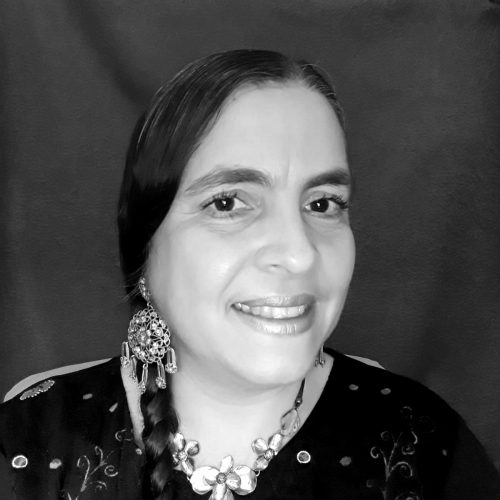
16. Romani Literature: A Keystone of the New Romanipen by Dr. Delia Grigore - January 26, 2021 Abstract: Bio: Lecture: Webinar: https://www.facebook.com/1995165164067234/videos/427978088258703/
This lecture aims to introduce the participants to the milestones of Rromani literature’s history from its beginnings until nowadays. The lecture will familiarize participants with the phenomenology of the Romani literature, covering its evolution, marked both by opportunities for development as well as obstacles. We will explore and briefly analyze works of Rromani literature, highlighting its main writers, but especially its main themes. Analyzing the main topics explored by the Romani literature (racism, tragic history, family, knowledge, dignity, beauty, nature, freedom, love, hope, hate, sense of home, ethnic identity, Rromanipen, self-representation, self-esteem, otherness, ethnic stigma, imprisonment, Slavery, Holocaust/o Samudaripen etc.) the lecture aims to discover, together with the learners, and every time in a different way, the Rromano ethos transfigured in literature. We will observe how Romani literature transcribes Rroma patterns of thinking, their views about the world and the multiple ways the Rromani literature approaches the relationship of the Rroma with themselves and with Otherness. The scope of this lecture is to demonstrate that the literary works carry and transmit to the reader, the interior lives and lived experience of the Roma as well as to underline Romani literature’s contribution to the development of what we can call the new or the modern Rromanipen.
Delia Grigore is a Romanian Romani writer, philologist, academic and Romani rights activist. As Senior Reader/Lecturer at the University of Bucharest, Faculty of Foreign Languages and Literatures, Rromani Language and Literature Section she researches, teaches and writes on Romani language and literature. Grigore is the President of the Association Rroma Center „Amare Rromentza.” As a specialist in ethnography, ethnology, ethnolinguistics, folklore, oral history, literature – especially in Rromology, Grigore has published extensively.

17. Flamenco by Gonzalo Montaño Peña - February 2, 2021 Abstract: The Genesis and beginnings of Flamenco is a question that has intrigued researchers in the field for decades. Commonly, the date of the second half of the 18th century has been established as the moment in which the first Flamenco musical forms are recorded in writings and such writings cite gitanos as the people who play that music both individually and in groups. Recent researches identify some of the musical and social elements that are present in Flamenco. However, these researches do not fit into musically nor provide answers to the questions about why Gitanos are the only and first creators of Flamenco or what has been the process that has led to its birth. This is due, on the one hand, to the fact that the focus is on finding musical precedents in the Spanish music that finally do not fit because there are no writings on the music of the gitanos in those centuries and on the other hand due to the existing ignorance about the history of the Roma people. In this lecture we will review the historical and social elements that Roma people lived in Spain and that, in my view, conditioned their culture and therefore Flamenco. Flamenco Gitano is not only a music but a cultural expression originated in Andalusia by the Gitano people. The birth of this culture has been conditioned by the relationship of the Gitano people with the majority society and the racism projected on them: Antigypsyism. Bio: Gonzalo Montaño Peña is a multidisciplinary musicologist and researcher with a specific focus on the research and dissemination of Flamenco. His work moves among researching, cultural promotion and defense of the rights of minorities, especially of the Roma people. Member of an important family of Gitano musicians, he has developed a deep knowledge of the culture of Flamenco in its different expressions, as well as the vindication of the contribution of the Gitano people to this culture. He has worked in different media specialized in Flamenco, as well as in the production of shows and recordings. He has made presentations on Flamenco in different institutions and directed the Flamenco section of RomArchive. He has worked for the European Commission in the policy unit for the inclusion of the Roma People and in social organizations at the international level. Lecture: Webinar: https://www.facebook.com/watch/live/?v=2726833324239366&ref=watch_permalink

18. (De)constructing Roma Representation in Film by Katalin Barsony - February 9, 2021 Abstract: In this lecture, I give a basic genealogy of Romani self-representation in film from the beginning of the 20th century to the present. In nearly a century, there has been a considerable leap in how the Romani people are represented, as well as the role of Roma in film production and modes of self-representation on screen. Departing from the stereotype of the freedom- and nature-loving, the wild Romani stranger was possible by providing space for Roma participants “citizens” to express their own identity, history, and living conditions through film. This, in turn, made the movie screen a platform for change and empowerment. Through illustrative examples, this lecture discusses a glimpse of this ongoing journey. Right at the beginning, it is important to postulate that photographic images and films are not “innocent” documents; they unveil the power relations in society from the context in which they were created and should be interpreted and analyzed as such. The “framing” of individuals and the society itself, as portrayed in photographs and films, must be made explicit so it can be clear that interpretation happens from a certain positionality, as well as embedded beliefs and stereotypes. Since Roma culture has been mostly passed on through oral traditions, these myths and fairy tales can be transmitted through fiction and animation in modern life. Therefore, films play a critical role in preserving Romani culture, shaping Romani self-representation, and, by extension, building complex Romani identities and contributing to the construction of common history and trans-border solidarity. Bio: Katalin Bársony is an award-winning documentary director and executive director of the Budapest-based Roma media organization, and the CEO of the BAXT Films company, which creates films, social media campaigns, and other tools to promote Roma self-representation. She has used her deep understanding of minority issues and her expertise in sociology to create the first-ever documentary series on Roma communities around the world to be broadcast on a mainstream television channel (Duna Television Hungary). The »Mundi Romani – the World through Roma Eyes« series was broadcast monthly between 2007 and 2011 (forty-two episodes shot in twenty-eight countries) and won recognition worldwide for its innovative quality, cinematography and the untold stories the films uncovered. In 2010, the »Mundi Romani« series was awarded the UNESCO Prize for the Rapprochement of Cultures. Awards and nominations at the Monte Carlo Television Festival, the International Festival of Audiovisual Programmes (FIPA), the CIVIS Prize, etc., led to the creation of independent media campaigns, such as the »I’m a Roma Woman« campaign, and film projects, such as »Uprooted« (2011), nominated at the 8th Aljazeera International Documentary Film Festival, and the upcoming documentary drama, »The 3Brothers«. Under Bársony’s direction, the Romedia Foundation created the »Buvero«, a two-week residential summer camp for young Roma women that focuses on media training. Each year 20 girls from three countries learn how to make films and produce new media content. Between 2013-2020 trained 116 Romani women at BUVERO methodology. In 2012, the Romedia organised the Budapest leg of »Requiem for Auschwitz« to commemorate Roma victims of Nazi terror. The program included a concert, a film festival and an art exhibition. Katalin Bársony is currently at work on a feature-length documentary films: »The 3Brothers« tells the story of a German Roma family torn apart by forced »repatriation« to Kosovo. The film is in post-production. »How far the Stars«, Barsony’s first feature length documentary is a co-production between BAXT Films and HBO Europe released in 2019 in 42 countries. The film follows a Roma composer and pianist who has created a new style of music that fuses traditional rhythms with contemporary Jazz. Katalin Bársony is a PHD student and completing her doctoral dissertation in communications and behavioral science. She is also a Miegunyah Fellow of the Victorian College of the Arts at the University of Melbourne. Lecture: Webinar: https://www.facebook.com/watch/live/?v=234227798295425&ref=watch_permalink
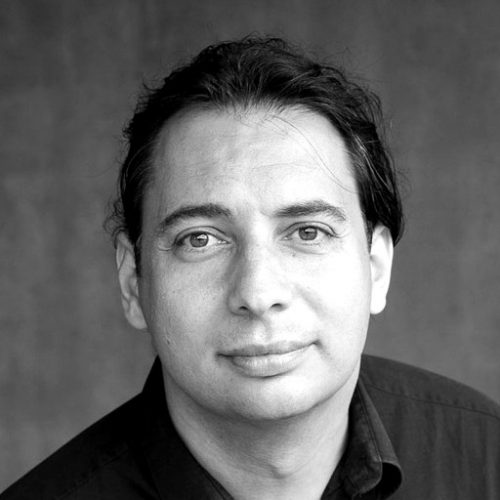
19. Politics of Photography - Reclaiming Roma Visuality by André Raatzsch - February 16, 2021 Abstract: This lecture deals with the question of how — in contrast to existing violent and racialized depictions of Sinti and Roma — an ethically and socially responsible use and consideration of the medium of photography is possible. Using examples of alternative photographic and research practices, including from the new “RomArchive – the digital archive of the Sinti and Roma,” the goal is to turn our gaze from racialized objects to racialized subjects, by paralleling Toni Morrison’s approach in her book Playing in the Dark. I would like to consider two specific questions: One, how can photography contribute to a new form of social perception that does justice to the complexity of particular social issues? And two, what are the consequences of that new perspective for the politics of photography? New ideas and new concepts are necessary in order to not only adequately represent our democratic coexistence, but also to recognize and fight against racism and antiziganism in media representations. More than ever, our democracy must renegotiate the basic tenets of our humanistic values and formulate an ethical approach to media representations of European Sinti and Roma that centres them in shaping their reality and role in society. By the end of my lecture, I hope to have underlined the fundamental necessity of a socially engaged journalistic practice across Europe, accompanied by a civic responsibility to strengthen local and independent journalism. This new perspective must be based on a critical self-reflection of journalists and members of the media themselves and is thus the greatest challenge facing journalism and the media in the twenty-first century. Today in many countries, journalists, filmmakers and photographers need not only the support of the general public, but also sufficient protection for their work, akin to other “minorities” such as the European Sinti and Roma. Bio: André Raatzsch, born in 1978 in Ilmenau/Germany, has participated in numerous international exhibitions over the past few years, among them the first Roma Pavilion “Paradise Lost” at the Venice Biennial in 2007. Subsequently, he carried out several artistic and cultural projects, including “Rewritable Pictures,” which – as part of a studio work using participatory and artistic methods – questions, expands, and critically reflects on pictorial representations in private Roma image archives. Raatzsch has contributed several essays and exhibitions on the representation of European Sinti and Roma, taking into account photography, photo archives and the accompanying discourse on the politics of photography. Lecture: Webinar: https://www.facebook.com/watch/live/?v=171298541219809&ref=watch_permalink
André Raatzsch has been head of the documentation department at the Documentation and Cultural Center for German Sinti and Roma in Heidelberg since 2016.
